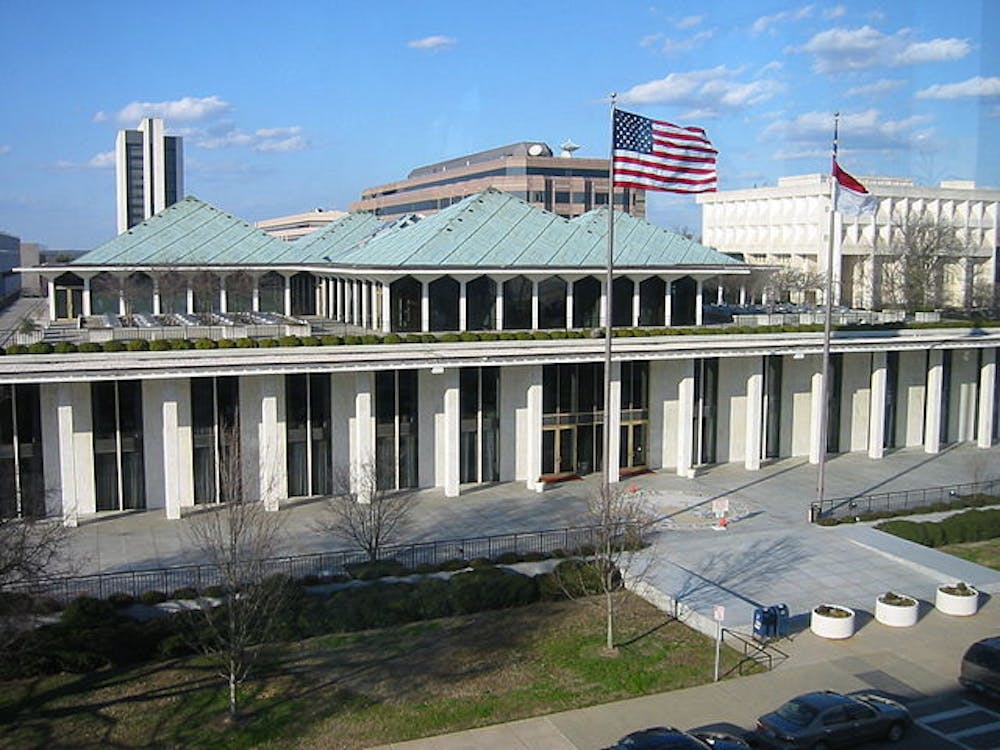Amid bipartisan tensions, the Republican-controlled North Carolina state government passed a new $30 billion budget for the 2023-24 fiscal year.
The 2022-23 budget expired on June 30, and the legislature was tasked with designing a new one. The current fiscal year began July 1, but the new budget, which provides the primary source of funding for several of the state government’s chief functions, including education, healthcare and infrastructure, wasn’t passed until Sept. 22 — about three months later.
Democratic Governor Roy Cooper announced that he will allow the new budget to become law without his signature, but that he considers the new budget to be “a bad budget that seriously shortchanges our schools, prioritizes power grabs, keeps shady backroom deals secret and blatantly violates the Constitution,” according to a statement he released Sept. 22.
The late budget delayed the enactment of a landmark bill passed in March, which expanded Medicaid to over 600,000 North Carolinians. The implementation of this bill was dependent on the passing of the new budget and therefore stagnant during the last three months when the old budget was in place.
Cooper will allow the new budget to pass, despite his disapproval, primarily because of this Medicaid expansion.
"Health insurance for 600,000 more North Carolinians that brings more mental health and substance use disorder treatment, help for desperate rural hospitals and billions of dollars into our economy is a life-saving, monumental decision for our state,” Cooper wrote in his statement. “I will not allow people who are crying for help to wait any longer.”
Medicaid expansion is the one issue on which the new budget accurately reflects the consensus of North Carolinians, according to Mac McCorkle, professor of the practice in the Sanford School of Public Policy.
State Democrats stand with Governor Cooper in opposing several aspects of the new budget. Their criticisms are mainly concerned with the amount of money allocated towards private school vouchers.
The budget designates $250 million for the Opportunity Scholarship Grant Reserve, a scholarship that sends children to private schools who otherwise wouldn’t have the means to do so. However, this year’s budget has removed a clause from the scholarship that required recipients to have previously attended public school and come from a low-income family. Now, anyone can qualify for the scholarship, and the wealthiest recipients will receive “awards equal to 45% of what the poorest would receive.”
Based on similar programs in other states, the State Department of Public Instruction predicts that the majority of these vouchers will now go to students who are already attending private schools.
The absence of previous requirements will likely also result in more white students receiving the voucher, despite students of color being a majority in public schools in North Carolina.
Public schools will now potentially have to pay “$200 million in state funding from lost student enrollment.”
“I do not think that if you tapped a majority of North Carolinians they would be comfortable with how expansive the voucher program is and what it can do to the public schools,” McCorkle said.
The budget allocates about $480 million towards teachers’ salaries and estimates an average two-year pay raise of 7% across the state.
Another point of contention is that the budget aims to significantly cut individual income taxes from 4.75% to 3.99% by 2026.
The budget also attempts to give more power to the general assembly and less power to the governor. It grants the legislature more authority to elect members to the Judicial Standards Commission and strips the governor of appointments to the State Board of Community Colleges.
“The Republicans really seem to be grabbing for power,” according to McCorkle, but Medicaid is the “silver lining” in which Democrats and Republicans were able to find consensus.
Get The Chronicle straight to your inbox
Signup for our weekly newsletter. Cancel at any time.

Ava Littman is a Trinity first-year and an associate news editor for the news department.

